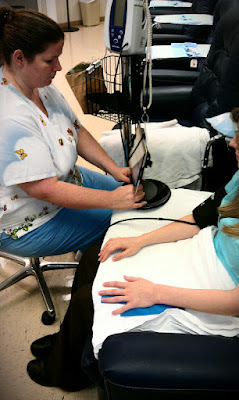“Quite
frankly, although it has greatly altered everything I do on a daily basis
within the office, because I’ve had to learn a new way of doing things, I must
say that my entire staff has acclimated quickly – and our patients like the
efficiency of the process. We compile
all prescriptions and tests ordered, as well as including test results and my
personal notes regarding each specific patient,” said Dr. Crayton.
EMR systems
are designed to keep a record of a person’s entire health and medical history
in a computerized, electronic format. The initiative is not a new one. In fact, according to an article in US
News and World Report, the Institute of Medicine began the process of encouraging such record keeping almost 20 years
ago. The Institute maintained that EMRs
“would make healthcare better, safer, and more efficient, if every person’s
complete medical history was stored on computers linked across the country. Clinicians anywhere could then view every patient’s every blood test, hospital stay, and X-ray.”
According to
Jon White, director of health information technology for the federal Agency for Healthcare Research and Quality – “Electronic
records help your doctor capture and manage your health information,” – which,
in turn, should help deliver better care with better outcomes.
As usual, The
Arthritis and Infusion Center is “ahead of the curve” in initiating this
important digital process in maintaining patient records. “It is extremely important to me to be
‘connected’ to my patients, not only electronically, but also as a caring and
compassionate physician, who really listens to their concerns. When my patients tell me they hurt, I believe
them,” said Dr. Crayton. “I always tell
them: Pain is not normal and we can
help.
“I also
encourage my patients to compile an electronic PHR – Personal Health Record – which they can bring into the office
to make certain that whatever care they have received from other sources is
accurately maintained within their AIC file.”





